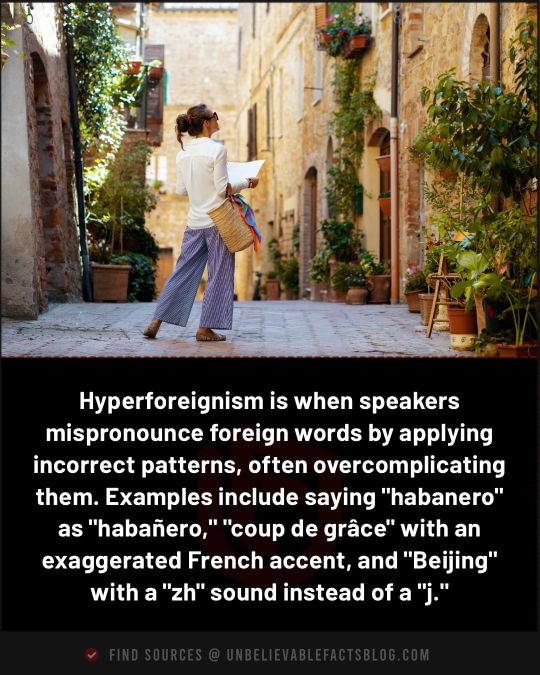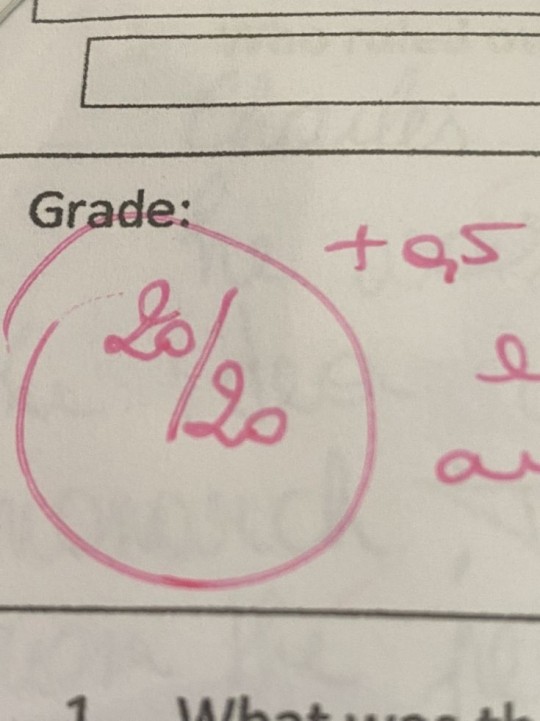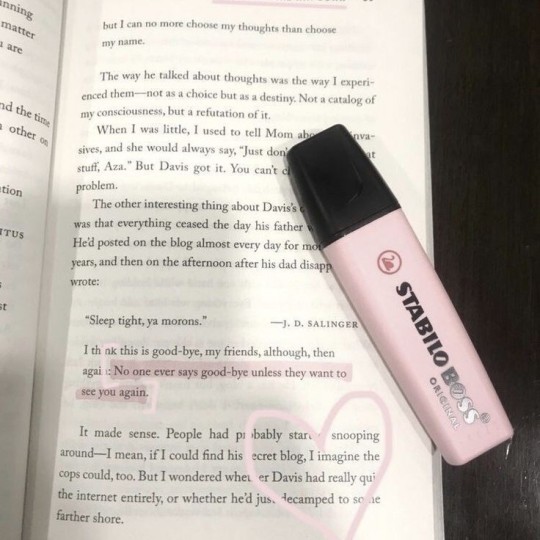#learning-foreign-language
Explore tagged Tumblr posts
Text
the weirdest thing about learning a language is not knowing a specific word.
not sure what a puddle is called but i can say little ocean in the road !
#language learning#langblr#foreign languages#french#french language#frenchblr#french langblr#french learning#study french#français#polyglot#bilingual
496 notes
·
View notes
Text









Arabic Language
"حُرّيتي أن أكون كما لا يريدون لي أن أكون."
“My freedom is to be what they don’t want me to be.”
– Mahmoud Darwish (1941-2008)
#arabic#arab#arabic language#arabic literature#arabic langblr#arabic learning#polyglot#foreign languages#langblr#language learning#baghdad#petra#palestine#free palestine#jordan#iraq#calligraphy#arabic calligraphy#poc dark academia#arabic quotes#palestinian poetry#middle east#arabia#bookish aesthetic
208 notes
·
View notes
Text
👏you👏won't👏remember👏shit👏if👏you👏try👏to👏learn👏100👏words👏in👏one👏go
#especially if you learn them out of context#the same applies to grammar#langblr#languages#language learning#polyglot#studyblr#foreign languages
311 notes
·
View notes
Text


(11/30) Recently I explained the concept of dépaysé(e), which literally translates to “de-countried”. Before I learned this word I could never eloquently describe why it always felt so off to be back in Ireland, and how I tend to feel a bit lost and foreign there despite being Irish. It can also be used in a positive context though! You could describe a holiday being great bcs everything felt so different, j’ai été dépaysé(e) ☕️
#I still love Ireland & it’s still my home ! But after living my entire adult life in France it feels so different than before I moved 😅#studyblr#French#french langblr#language learning#language studyblr#dark academia#light academia#30dop#30nym#Langblr#foreign languages#language study
818 notes
·
View notes
Text
Wednesday, September 27.
Langblr.
If ever you're in France, accompanied by your kitty cat, and you find yourself unintentionally (and quite unexpectedly) projecting intestinal gas produced within the body by bacteria that has broken down food, and said kitty cat looks a little alarmed, and you don't know what to say, well. Fortune smiles upon you this day. Consider #langblr your knight in shining linguistic armor. Chat, j'ai pété.
It really can happen to anyone. But langblr is here for all your polyglot needs: learning how to say chai tea in Czech, the frankly adorable etymology of peninsula, Greek paleographic fonts, for words of support for those underway with their language-learning adventures, or if you're in need of some support yourself. It is a particularly wholesome corner of Tumblr, for those with an interest in the slow-burn magic of learning another language.

#today on tumblr#langblr#french langblr#language learning#polyglot#foreign languages#learning languages#french language#language#language blog#languageblr#languages#langblog#bilingual#studyblr#catblr#cat#i farted#cat i farted#farty cat#linguistics#etymology#language stuff
1K notes
·
View notes
Text
it’s so painful to study another language when there isn’t a lot of content available in your country. what was the internet even made for, if not to share knowledge across borders? here i am, stuck watching dubbed american tv shows, when there is a whole world of native german shows that will never reach my screen.
#foreign languages#language stuff#languages#language#language learning#langblr#language learning struggles#german#deutsch#deutsch lernen#german learning#learning german
110 notes
·
View notes
Text
How to Actually Learn a Language (Without Wasting Time)
Polyglots will do anything to sell you something, so here’s the fastest and most basic technique based on my research.
—
Step 1 – Getting the Absolute Basics In
This is where most people already get lost. If you search social media for how to start, the advice isn’t necessarily bad, but it often makes you dependent on a single resource, usually an app that will eventually try to charge you. Duolingo, for example, has turned into a mega-corporation that perfected gamification to keep you on the app.
Remember: free apps make money by keeping you on their platform, not by helping you become fluent.
At this stage, the goal is not to gain conversational skills but to avoid overwhelming yourself and get a feel for what you’re actually getting into. All my recommended resources are free because I believe learning a language should be a basic right. I wouldn’t advise spending any money until you’re sure you’ll stick with it. Otherwise, it can turn into a toxic “but I paid for this, so I have to keep going” mindset that drains all the fun out of learning.
• Language Transfer – Highly recommended for Spanish, Arabic, Turkish, German, Greek, Italian, Swahili, and French.
• Textbooks – Simply search for [language] textbook PDF, or check LibGen and the Internet Archive. Don’t overthink which book to choose—it doesn’t matter much.
• Podcasts – Coffee Break is a solid choice for many languages.
• YouTube Channels – Join r/Learn[language] on Reddit and find recommendations.
—
Step 2 – The 20/80 Principle
The idea is that 20% of words make up 80% of everyday speech.
What you’re going to do:
Search “Most common words [language] PDF”.
This list is now your best friend
For flashcards, I highly recommend AnkiPro. It lets you import pre-made lists for Anki/Quizlet and has an archive where you’ll definitely find the most common words. But it lacks audio. The real Anki program has it, but only on PC (unless you’re willing to pay $30 for the mobile app). Use AnkiPro for now—we’ll come back to repeating phrases later. In the meantime, find a YouTube video with the most common words pronounced, or use Google Translate for audio.
(Knowt is a free alternative for Quizlet if you prefer that)
These lists will spare you from learning unnecessary vocabulary at this stage. Spaced repetition (which Anki uses) can take longer, but it’s worth it because you want these words to stick. Anki will only introduce a small number of new words per day. Once you start new words, write phrases using them. Doesn’t matter if they’re random just try to use them.
—
Step 3 – The First Breakup With the Language
This isn’t really a step, but I have to mention it. For me (and for other language learners I’ve talked to) this is where motivation crashes.
The dopamine rush is over. Your ego boost is gone. You’re stuck understanding just enough to notice how much you don’t understand, and topics are getting more complex. Everything feels overwhelming, and motivation drops.
This is normal. You have to push through it.
I’ll write a separate post on how I manage this phase, but for now:
• Take a step back and make sure you understand the basics.
• Find something that keeps you motivated.
• Consistency is key. Even if it’s just five minutes a day, do it. (Edit: You can search online for inspiration on scheduled plans. I found one that organizes language exercises into different categories based on how much time you have each day, which seems helpful. https://www.reddit.com/r/languagelearning/s/sSGUtORurM
Personally, I used AI to create a weekly plan kind of as a last resort before giving up on the language, but try looking for pre-made ones first.)
I personally enjoyed story learning during this phase. And don’t forget the frequency lists are still your best friend. For story learning check out Olly Richards books!
—
Step 4 – Immersion
Your brain needs active and passive immersion. The earlier steps were mostly active, and now you’ll start the fun part.
How to Immerse Yourself:
1. Join some kind of community.
• I enjoy Reddit/ r/lean[Language]. Do this in your target language, but also in the language you already speak. Post that you’re looking for a chat partner in your target language. The most people are nice, and the mean ones will just ghost you anyway.
2. Watch shows.
• Subtitles only in your target language or drop English subtitles ASAP.
3. Listen to podcasts.
4. Read
I personally dislike media made for kids (except on low-energy days). For real immersion, pick something for adults.
5. Translate, write, and speak.
Before this, you wrote simple sentences using vocabulary. Now, put them to work:
• Translate texts.
• Keep a diary.
• Write short stories.
• Complain about the language in the language.
It doesn’t matter, just use it.
—
Step 5 – Speaking
Start speaking earlier than you think you’re ready. Trust me. This is probably where most people disagree with me. I do think you should start by focusing on input, but the importance of output isn’t talked about enough.
Now, the real Anki (or any program with phrases + audio) comes into play. At lower levels, it doesn’t make sense to just start talking, since you wouldn’t even be able to recognize your mistakes. Here’s what you’ll do:
1. Repeat phrases out loud.
2. Record yourself speaking.
3. Compare your recording to the original audio and adjust your pronunciation.
If it’s a tonal language (or if you struggle with accents), start this even earlier.
Other Speaking Strategies:
• Shadowing �� Repeat after native speakers.
• Reading aloud – Your own texts, books, anything.
• Talking to yourself.
• Talking to natives (if you’re brave).
I’m not here to fix social anxiety, but I am here to help with language learning, so just speak.
—
Final Thoughts
• These steps overlap, and that’s fine.
• This is supposed to be fun. Learning just because you’re “too deep in” or because of school won’t cut it.
• If you’re lost, take a step back.
• I’m not a professional. I just think a straight answer is way too hard to find.
—
If you have anything to add, feel free to share.
#esperanto#linguistics#language nerd#polyglot#langblr#foreign languages#languages#language learning#chinese#french#language#learnlanguages#learn english#learnesperanto#learning#learn japanese#learnandgrow#learn french#learnnewskills#i dont know what to write
95 notes
·
View notes
Text
One Song in Every Language
Okay, tumblr. Let's try something.
I want to make a playlist with one song in every single language. Of course, this is impossible- the spotify playlist limit is something like 5,000- but I want to try. Of course, I can't do this alone, and so I'm sharing the project with the entire online language nerd/ music nerd community. Together we can celebrate linguistic diversity- and find some really cool music :)
Here's how it works. This spreadsheet will document every song and language represented. When you want to add a song, first look in the spreadsheet to see if that language is already represented. If it isn't, add the song to the playlist, and then add it to the spreadsheet.
What counts as a language? This is, as we all know, a fundamentally political question (Russian/ Ukrainian? Hindi/ Urdu? "Chinese" and its "dialects"...) We don't have to solve those debates here. My thinking is: the point is to celebrate linguistic diversity in as many forms as possible. If you can make a reasonable argument for why a song and its linguistic variety should be represented, go ahead and add it.
Yes, this means conlangs count (cause conlangs are SICK!) This also means dead languages count- throw in all the Latin and Classical Nahuatl you like. Glossolalia (à la Sigur Ros) and semi-linguistic scat-esque nonsense (à la Kobaian)? Sure, why not!
I'm calling this one song in every language, but we also want to highlight small and minority languages. So maybe we don't want ten different French songs, but if there are two or three different artists singing in Sami (especially different varieties of Sami), throw it in!
Let's make this awesome. Let's make this huge. Spread it around to every language nerd and music geek you know.
Thanks, dankon, merci, etc :)
#language#linguistics#music#spotify#playlist#language learning#linguistic diversity#language diversity#conlang#foreign languages#language nerd#music nerd
192 notes
·
View notes
Note
Hi, this might be a stupid question, but do you know if Nikita and Artyom were maybe "fans" of any like Western murders/mass shooters? Like for ex: Columbine, Jeffrey Dahmer, and yk, so on and so forth.
Hey, not a stupid question at all. Dismembered PugachOva has a song dedicated to Albert Fish, but that seems to be it. They probably knew more than that, but they didn't really talk about it, and they weren't that interested.
Расчленённая ПугачОва — Пиздато! (А. Фишу посв.) (Dismembered PugachOva — Cunty! (can be translated as "Fucking awesome!") (dedicated to A. Fish)) × It appears on this compilation album of "the band's greatest hits in 2008-2009". + A slightly different mix of the same song: Расчленённая ПугачОва — Пиздато! (Альберт Фиш — крутой мужЫк) (Dismembered PugachOva — Cunty! (Albert Fish is a cool man))
Artyom presumably knew something about the mass shooters, but it's unknown about whom exactly. × On September 3, 2010, he said the following to someone (the other person's answers haven't been preserved). Read it from the bottom up. He wasn't completely serious about it, he was just tired, I guess.

► Regurgitate — Perish in Blood
#ask response#info#Artyom and Nikita loved self-fulfilling prophecies lol#bro JUST entered the uni. already tired. so real of him ngl#BRO you're in the MEDICAL uni. wdym you don't wanna study chemistry. YOU HAVE TO. but I get that. as a person who had to study chemistry#don't know who made the screenshot lol POLSKA GUROM#who needs Western criminals when this land has so many interesting and foul mfs#years ago I was so wrong when I thought that foreign criminals were more interesting. not necessarily#it's just cool to understand the language/society/culture/history/etc. surrounding everything. makes it easier to imagine#AND you learn more#dedicated to A. 🐟#A FISH#academy maniacs#irkutsk molotochniki#nikita and artyom#nikita lytkin#artyom anoufriev#tcc nikita#tcc artyom#tc community#tcc fandom#tcc tumblr#tccblr#true cringe community#teeceecee#tee cee cee
70 notes
·
View notes
Text
did you guys know travail (work) comes from the latin word trepalium which was a torture device which became travailler (to work) in old french which meant to suffer ! how nice
#langblr#language learning#french#french language#foreign languages#frenchblr#french langblr#french learning#study french#français
108 notes
·
View notes
Text

Hyperforeignism is when speakers mispronounce foreign words by applying incorrect patterns, often overcomplicating them. Examples include saying "habanero" as "habañero," "coup de grâce" with an exaggerated French accent, and "Beijing" with a "zh" sound instead of a "j."
#linguistics#language#pronunciation#hyperforeignism#mispronunciation#foreign words#phonetics#language learning#etymology
73 notes
·
View notes
Text
lifehack #1: journaling can be really useful for language learners
lifehack #2: even the easiest beginner prompts can be made more challenging by adding "why?" as an additional question:
what are your hobbies? why?
what did you do today? why?
what did you have for breakfast? why?
what was the weather like today? w h y ?
217 notes
·
View notes
Text
obsessed w/ justin's response to ppl asking about paper's gender in 2016
like "paper's male........ unless we make a change i mean 🤔" like at any point they're open to randomly transgender-ing a character even HALFWAY through season two lmao??? gotta keep all your options on the table yknow
#i have absolutely NO clue what justin and brian are saying to each other dont ask me 😭😭#maybe they should learn to enunciate in these old livestreams damn#“i don't think HE seed unknews” “they” “they. ZED” like sure whatever#its like theyre speaking a foreign language im like ok 👍 sure guys#inanimate insanity#txt
87 notes
·
View notes
Text
Keeping up your Languages when you’re Busy
Confession: I’ve been slacking on Japanese recently because my life has been so hectic recently. So here are some of the ways I’ve been trying to keep it in my brain when I can’t dedicate a lot of time to studying.
CHANGE YOUR PHONE LANGUAGE
This applies to computers as well! This is the easiest way to ensure you see at least some of your target language every day. It’s good for any level, even beginners.
If you haven’t already done this, do it now. I understand that some things are important and you need to be sure you understand them — in that case, you can always change individual apps to have different languages, just look up the app name in settings.
Podcasts/Music
Find some podcasts in your target language and listen to them before bed, during your commute, whatever. There are lots of podcasts made specifically for learners, or you can look up topics in your target language to find a podcast you might enjoy.
Music is also an amazing way to hear your target language being used. If you find an artist you like, that’s another good way to study your TL! Follow them on socials, look up interviews with them, etc.
Talk to Yourself
Any spare minute you have, talk to yourself in your target language. It doesn’t need to be out loud. You can have a conversation with yourself, try to express how you’re feeling, make up stories, or just describe the things around you in your target language. This is also a good way to see what kind of vocabulary you’re missing.
Apps
Duolingo has fired a ton of translators and started using crappy AI translations — so they’re probably not the best choice.
I’d recommend dictionary app that has some sort of flash card feature is also good, or an anki deck. Drops is good, and has a lot of languages, but keep in mind you’ll need audio. Anything that’s easy to get out and do for even just a few minutes is perfect.
Apps won’t teach you a language on their own, but doing a little every day helps remind me the language exists and keeps it in my mind.
Texting/Writing/Posting
Whether your friends know your TL or not, force them to experience it by randomly messaging in Japanese! Or, if you feel fancy, download an app like “HelloTalk”, “Tandem”, “Speaky”, “Tabee”…there are a lot.
If you keep a digital journal (like I do…inconsistently), try to write some entries in your TL.
If you have a blog, which I assume you do, post in your TL. Even if you’re a beginner, you can make a sideblog dedicated to saying stuff like “I’m hungry” and “Green is my favourite colour” in your target language.
Open your notes app and just write random words you can remember or sentences you can string together.
I know it’s really difficult, and don’t beat yourself up because you aren’t studying as hard. A language can be a lifelong companion — you’ll have phases of studying constantly, and sometimes it’ll take the back seat, but there’s no rush to learn it. Have a great day :)!
#language#language learning#langblr#languages#learning japanese#learning Spanish#learning French#Quinn posts#language learning apps#language learning resources#language learning advice#language tips#foreign languages#language resources#studyblr#100#my language tips
318 notes
·
View notes
Text
Recommendations for media about translation, interpreting, and foreign languages
Movies and TV
Quo Vadis, Aida? (2020) The Interpreter (2005) The Last Stage (1948)
Books
Babel: An Arcane History by R.F. Kuang The Centre by Ayesha Manazir Siddiqi Translating Myself and Others by Jhumpa Lahiri The Interpreter by Suki Kim Girl in Translation by Jean Kwok Translation Nation by Héctor Tobar Alphabet of Thorn by Patricia A. McKillip Translation State by Ann Leckie
Other Important Topics and Subjects
La Malinche The Rosetta Stone The Tower of Babel The Adamic Language Esperanto Philology Goethean World Literature
Documentaries and History
The Interpreters: A Historical Perspective The Nuremberg Trials Biblical Translation St. Jerome - patron saint of translators Shu-ilishu's Seal (first depiction of an interpreter)
#translation#interpreting#languages#foreign languages#polyglot#langblr#lingblr#grad school#translator#interpreter#babel#babel an arcane history#rf kuang#jhumpa lahiri#tower of babel#esperanto#nuremberg trials#biblical scripture#language nerd#language learning#bilingual#multilingual#gradblr#book recommendations#film recommendations#studyblr#philology#classic literature#dark academia blog
328 notes
·
View notes
Text



Language Resources 🎀
*that I currently use for studying Spanish. When I pick up studying Japanese again, I will make a list for that as well <3 I currently use a handful of resources for learning Spanish, and they've all proven very useful so far!
🩷 My Current Resources for Spanish
Busuu - hands down my favorite language learning app. So much better than Duolingo, in my opinion (especially for languages with a different alphabet/writing system). I bought the premium for a year, which will expire in Septmeber, but I'm debating renewing again because I love it so much.
LingQ - I like using this for reading in Spanish. It gives me different types of things to read about, and while I don't have premium, I do put all the words I don't know into flashcards on AnkiApp on my laptop and translate anything I don't know using SpanishDict.
SpanishDict - favorite translation/dictionary app. I know it has lessons you can use, tho I haven't tried it yet, but I really do love this app. It's super helpful when I'm making flashcards or writing random vocabulary notes.
Goodnotes - This is a general note-taking app, but I love it because it allows you to import and write on PDFs, and that's just perfect for me! I've downloaded free PDF short stories/children's stories in Spanish and made notes of words I don't know, and taken notes in the app too. Definitely my favorite notes app, ever.
Italki - I know this is a website, too, but I use the app. It lets you work with professional teachers/community tutors in your target language. You can have structured lessons or just use it for conversation practice. I did a trial lesson not too long ago and have an upcoming lesson booked out in about 5 days. You pay per lesson, so there is no subscription, and there are so many languages and teachers/tutors to choose from. I did a lot of research before choosing a teacher, and I'm very happy with my decision so far. Definitely useful if there's not native speakers near you or you're like me and not confident talking to people you know in your target language/their native language.
Quizlet/AnkiApp - I use AnkiApp more then quizlet, and the Anki I'm referring to is NOT the same way everyone else uses, but it's the flashcard app of preference at the moment. I tried the AnkiDroid app and hated it. But yeah, AnkiApp is useful for flashcards and I really like it. I have it on my Chromebook and my Ipad.
Netflix - I love watching shows in Spanish on Netflix so much. I am currently watching La Reina del Sur on it (used to watch that sporadically in the past at a friend's house) and plan on watching some other shows, including Elite.
Spotify - I enjoy listening to Spanish music and podcasts right now. The music is more of an entertaining/enjoyable fork of audio input, and the podcasts help me get a feel for speaking and pronunciation and I choose podcasts that speak on topics of interest tk help with vocabulary in those areas I'd like to be able to speak about.
Textbooks - I have 2 PDF textbooks, Gramatica de Uso del Español: A1-B2 and Gramatica de Uso del Español: B1-B2. I've heard these are great for learning Spanish (and they're both only written in Spanish, like there's no English in them) and plan on using them once I figure out how to take good and useful textbook notes! I definitely need to improve on my grammar.
Those are all my current Spanish resources! I'd definitely say my current level is like a high A1 right now, nearing A2, but I have just a little bit of work to do before I get there. These resources are definitely gonna help, tho!
#studyblr#study motivation#it girl#langblr#spanish langblr#study tips#language goals#that girl#langblog#language resources#foreign languages#language learning#language#langblr community#learn spanish#language learning goals#language studyblr#college studyblr#study blog#studying#language study tips#college student#student life#university student#language student#spanish#language learning tips#spanish studyblr#spanish language#study community
247 notes
·
View notes